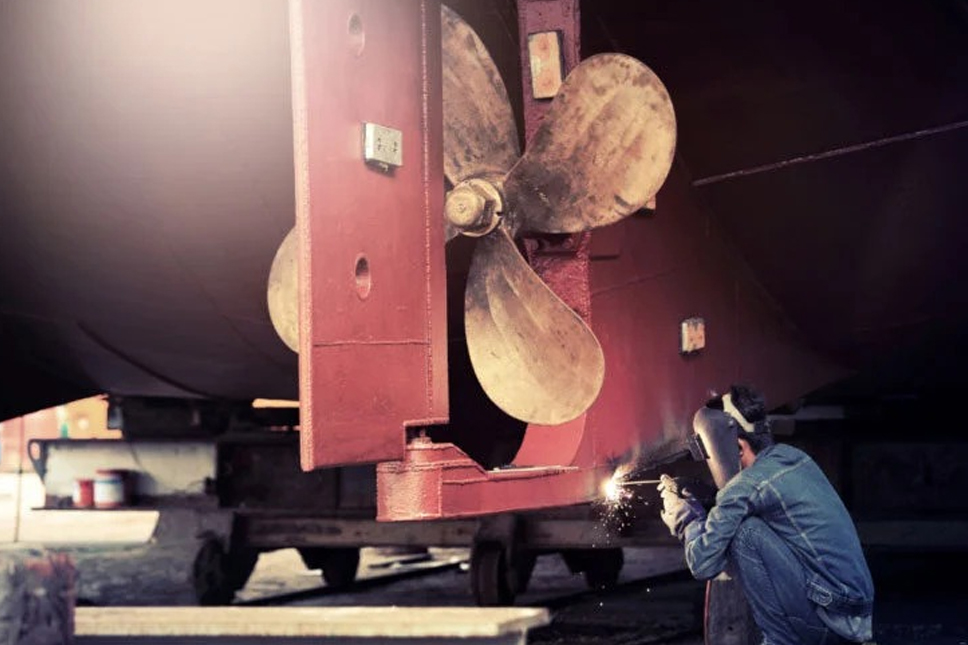Ship Marine Welding Training Services
- Home
- Ship Marine Welding Training Services
Our Other Services

Ship Marine Welding Training – Complete Overview
🔧 What is Ship Marine Welding Training?
Ship Marine Welding Training is a specialized program designed to train welders to work in shipbuilding, marine maintenance, and offshore fabrication. It focuses on welding techniques, materials, and safety practices required in marine environments, where strength, durability, and corrosion resistance are critical.
This training is aligned with global marine certification standards such as:
- DNV (Det Norske Veritas)
- ABS (American Bureau of Shipping)
- Lloyd’s Register (LR)
- IRCLASS (Indian Register of Shipping)
🎯 Objectives of Marine Welding Training
- To develop skilled marine welders capable of working on ships, tankers, submarines, and offshore platforms.
- To ensure welders understand the challenges of marine welding like saltwater corrosion, confined spaces, and dynamic loads.
- To meet classification society requirements for marine welding certification.
- To improve job readiness for work in shipyards and offshore construction projects.
🛠️ Key Topics Covered in Training
- Welding Processes
- SMAW (Shielded Metal Arc Welding)
- GTAW (TIG Welding)
- FCAW (Flux-Cored Arc Welding)
- GMAW (MIG Welding) – for marine-grade materials
- SAW (Submerged Arc Welding) – for structural components
- Materials Used in Marine Industry
- Mild Steel
- High Tensile Steel
- Stainless Steel (316L, Duplex)
- Aluminum Alloys – for lightweight marine structures
- Welding Positions & Joints
- Welding in all positions (1G to 6G)
- Butt welds, fillet welds, lap joints
- Welding in confined and overhead positions
- Marine Standards & Codes
- AWS D1.1 – Structural Welding Code
- ASME Section IX – Qualification Standards
- ISO 9606 / ISO 15614 – International standards
- Classification Society Requirements (DNV, ABS, LR, IRCLASS)
- Safety in Marine Welding
- Working in confined spaces and hot work areas
- Proper use of PPE (Personal Protective Equipment)
- Fire prevention and gas safety
- Handling and ventilation in enclosed ship compartments
- Corrosion and Coating Awareness
- Understanding marine corrosion mechanisms
- Weld surface preparation before painting/coating
- Post-weld treatment to prevent corrosion
- Weld Testing and Inspection
- Visual Inspection (VT)
- NDT Methods: LPT, MPT, UT, RT
- Understanding weld defects and acceptance criteria
- Welder qualification tests for certification
🎓 Who Should Enroll?
- Welders seeking marine/offshore jobs
- Technicians in shipyards and dockyards
- Fabricators working on vessels, platforms, or marine piping
- Engineering students looking for industry-oriented skills
- Anyone aiming for DNV/ABS/LR/IRCLASS welder certifications
✅ Benefits of Marine Welding Training
- Gain internationally recognized certification
- Improve job opportunities in shipbuilding and offshore sectors
- Enhance safety and quality awareness
- Learn to work on critical marine structures
- Become eligible for high-paying offshore and overseas jobs
📍 Job Roles After Completion
- Marine Structural Welder
- Offshore Platform Fabricator
- Pipe Welder (Marine/Offshore Piping)
- Shipyard Maintenance Technician
- Underwater Welder (with advanced certification)
